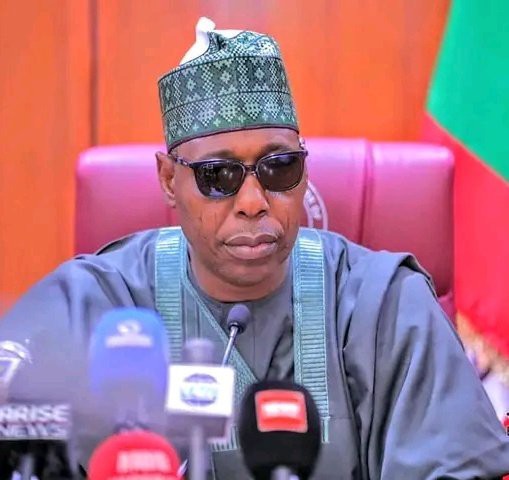By Muhammad Inuwa M/fashi
Widowhood remains a profound social challenge, with millions of women facing systemic neglect and maltreatment. Recognizing the gravity of this issue, the United Nations designated June 23 as International Widows’ Day, highlighting the struggles widows endure worldwide. Since 2011, through resolution A/RES/65/189, the UN has celebrated widows to shed light on their obstacles and advocate for their empowerment.
The UN estimates there are over 258 million widows globally, many of whom face invisibility, deprivation, and exclusion. In Africa, widowhood often entails not only the trauma of losing a spouse but also societal maltreatment and economic hardships. Stripped of their inheritance rights and burdened with providing for their families, many widows spiral into poverty.
In Nigeria, particularly in Borno State, where the Boko Haram insurgency has left thousands of women bereaved, the challenges of widowhood are compounded by displacement and insecurity. Understanding the urgent need to address these issues, Governor Babagana Umara Zulum has spearheaded initiatives that go beyond sympathy, focusing on empowerment and sustainable solutions.
In a remarkable gesture of compassion and governance, Zulum supervised the distribution of N250 million to 25,000 widows and vulnerable women in Gwoza Local Government Area. The funds were disbursed through the Borno Renaissance Microfinance Bank, ensuring transparency and financial inclusion. Each beneficiary received N10,000, an amount intended to serve as a seed for small-scale business ventures or immediate household needs.
The distribution exercise, held at four locations in Gwoza town, was meticulously organized to reach the most vulnerable. Speaking at the event, Zulum reiterated his commitment to alleviating the plight of widows and fostering resilience among victims of insurgency.
“This intervention is aimed at supporting women who have suffered losses due to the Boko Haram crisis. Many have lost their husbands and now bear the burden of sustaining their families. Today, we are providing not just financial assistance but a path toward financial inclusion,” Zulum stated.
As part of the initiative, beneficiaries were encouraged to open bank accounts, a strategic move to enhance their access to formal financial services. Zulum emphasized the long-term goal of covering all 27 Local Government Areas, ensuring widespread impact.
The governor’s efforts align with calls for a multi-stakeholder approach to addressing the challenges faced by widows. While NGOs and community groups have been instrumental in advocating for widows’ rights, Zulum’s leadership exemplifies how government intervention can amplify such efforts.
Beyond financial aid, there is a need for policies that safeguard widows’ inheritance rights and provide them with access to education, healthcare, and skill acquisition programs. Governor Zulum’s initiatives demonstrate the power of right policy actions in transforming lives and restoring dignity to one of the most marginalized groups in society.
As International Widows’ Day reminds the world of the struggles widows face, Borno State’s example underlines the importance of compassionate governance. Empowering widows is not just about financial aid; it is about fostering resilience, independence, and hope. Through targeted interventions and long-term planning, leaders like Zulum are proving that with the right actions, it is possible to bring succour to widows and turn adversity into opportunity.




